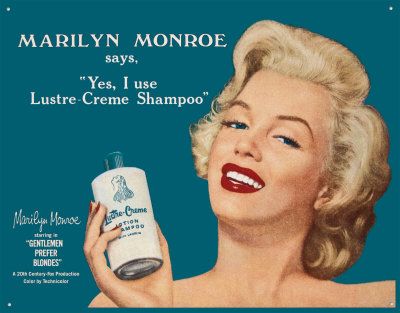I discovered advertising from the 1950s on the internet that skillfully promoted an ordinary shampoo through the legendary sex icon, Marilyn Monroe.

Use of persuasion
The advertisement’s key tactic for achieving its goal of selling these goods is persuasion. The ad is designed to send the notion that all women who want to be like Marilyn Monroe must purchase this item. The product is validated by the ad’s relationship with Marilyn Monroe. It conveys the message that if Monroe utilizes this stuff, everyone should as well.
Appeal to Authority
When a person of high authority is utilized to make a statement or claim about a subject, and people do not question it because of the level of authority placed on the individual making the statement, this fallacy might be called into question (Barroso, 2019). Because it employs Marilyn Monroe as the authority figure to which people will appeal, I discovered that this ad’s success is based on this logical fallacy.
This is how the ad’s “Appeal to Authority” argument might be broken down (Barroso, 2019):
- When it comes to the subject of beauty, Marilyn Monroe is said to be an authority figure.
- Because she is claiming, or in this case, asserting, that she uses “Lustre-Creme Shampoo”…
- Then Lustre-Creme shampoo MUST do its job and make you look stunning.
When people hear the name Marilyn Monroe, they often associate it with elegance, attractiveness, and sex icon from the twentieth century. This ad, in my opinion, does an excellent job of integrating celebrity power to appeal to its target audience and persuade them of the absolute necessity of purchasing their product.
References
Barroso, P. (2019). Rhetoric of affections: advertising, seduction and truth. Media & Jornalismo, 19(34), 143-154.